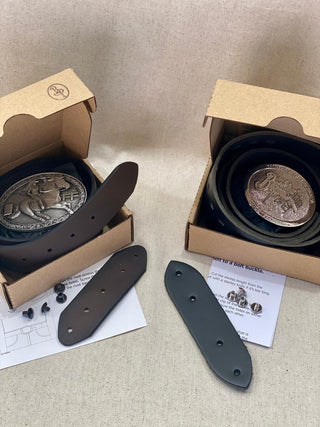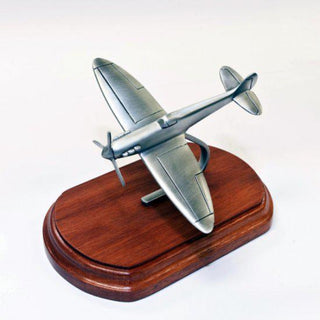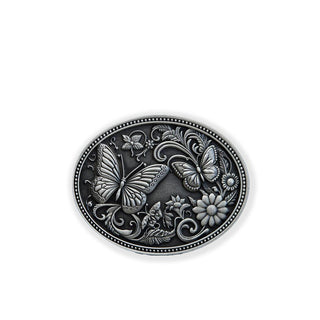Is there much difference?
Centrifugal casting is a method that requires creating a mould of a certain product or design then easily replicating it. This is done by pouring liquid metal into the mould while it is spinning at high velocity and then allowing it to cool. First, you need to have that master product to be able to create your mould. There are two types of masters that can be created, 2 Dimensional (2D) and 3 Dimensional (3D).
2D Masters
2D masters are created in-house at Buckingham Pewter. First, an idea is established, then the artwork is created and finalized from that concept. Next, the artwork is transferred to a clear film using a bromide printing process. That film is then used to create an image on the UV sensitive metal via UV light.
To create a 2D master, the UV sensitive metal is cut to the size of each design. They are then placed in a UV light box and exposed for approximately 1 minute. These are then transferred to hot water and scrubbed until the exposed layer has been completely removed, thus creating two layers and a 2-dimensional shape. Further cutting and trimming is carried out to finish the design. The back layer is then glued to the front creating a two-sided piece.

3D Masters
A concept is developed and used to create artwork for the design. This is usually provided in the form of a sketch or photos of the elements to be included. A 3D render is created, and amendments are made until the desired design is reached. The render is then printed in 3D using a high heat resin. The product is then washed in isopropyl (pure alcohol), dried, and then heated under a UV light evenly to cure and harden. The product is then removed from its printing supports, lightly sanded, and is ready for moulding.
3D masters have the capacity to be cast into many shapes. With the advancement of technology comes more creative freedom and the ability to create designs with highly detailed features.

Process –
2 Dimensional –
Artwork – All artwork needs to be vector quality.
- Concept is developed and used to create the artwork.
- Artwork is approved.
- Artwork is then altered for printing onto an Art Film.
- Artwork is sent to printers.
- The film is then used to transfer the design onto a UV sensitive metal.
- Hot water is used to soften the metal and allow the exposed part to be scrubbed away. This results in two different layers, an upper and a lower.
- The metal is cut and shaped to size of the design.
- Front and back designs are then glued together.
- It is ready for moulding.
3 Dimensional –
- A concept of the end product is developed; usually images or a sketch/ design is provided.
- Vector artwork is designed.
- 3D render is then created; amendments are made and then the design is signed off.
- The 3D render is used to be printed in a high heat resin.
- Product is washed in isopropyl (pure alcohol).
- UV light is then used to heat the product and cure the resin.
- The printed master is then lightly sanded and made ready for the moulding stage.




















